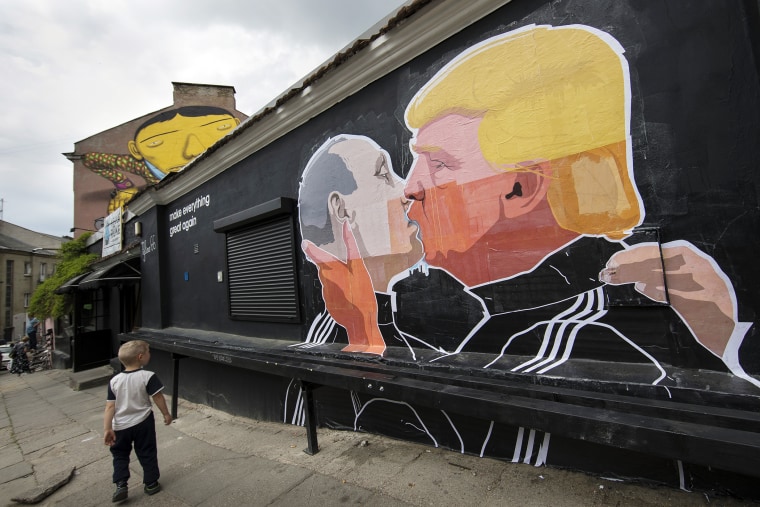U.S. intelligence officials now believe with "a high level of confidence" that Russian President Vladimir Putin became personally involved in the covert Russian campaign to interfere in the U.S. presidential election, senior U.S. intelligence officials told NBC News.Two senior officials with direct access to the information say new intelligence shows that Putin personally directed how hacked material from Democrats was leaked and otherwise used. The intelligence came from diplomatic sources and spies working for U.S. allies, the officials said.... [T]he U.S. has solid information tying Putin to the operation, the intelligence officials say. Their use of the term "high confidence" implies that the intelligence is nearly incontrovertible.
Michael McFaul, the former U.S. ambassador to Russia,
noted on the show last night that while the news is important, it shouldn't necessarily be seen as surprising: "To run this kind of operation would have required presidential approval, and in Russia, a country run by one man, there's just no question in my mind that he would've been involved."A revelation like this one only intensifies the scope of the controversy: U.S. intelligence officials believe Vladimir Putin, a former KGB agent, was personally involved in an espionage scheme, intervening in the American presidential election, and leaking stolen materials that helped put Donald Trump in the White House.When Michael Morell described this as "
the political equivalent of 9/11," don't be too quick to dismiss the assessment as hyperbolic.That said, there's always a question surrounding public reaction to revelations such as these, and new data from the Economist-YouGov poll suggests rank-and-file Republican voters have started to change their minds about Russia's autocratic president. The
Washington Post reported yesterday:
In the summer of 2014, both Democrats and Republicans held negative views of the Russian president. His net negative rating with Democrats was 54 points; with Republicans, it was 66 points. At the time, the mainstream Republican foreign policy opinion was that a wily, aggressive Putin was rolling over U.S. interests in Europe. There was some punditry about Putin as a greater leader than President Obama, but it did not shift views of Putin himself.Trump's campaign did so. There's been a 56-point positive shift among Republicans in their views of Putin; his net negative rating is now just 10 points. While Clinton voters view Putin negatively by 72 points, Trump voters do so by a slim 16-point margin.
When it comes to favorability ratings, the survey found that Republican voters think
far higher of Putin than they do President Obama or Democratic leaders in Congress.Some of this is likely the result of raw partisanship and gratitude among Trump followers for Russia's role in helping elect their candidate, but a separate
Washington Post report also fleshed out Putin's popularity among right-wing Americans for the Russian leader's ethno-nationalism.Indeed, Stephen Bannon, Trump's senior advisor, delivered a speech a couple of years ago in which he told a group of European conservatives that "we, the Judeo-Christian West, really have to look at what [Putin]'s talking about as far as traditionalism goes -- particularly the sense of where it supports the underpinnings of nationalism."In the meantime, former Rep. Jack Kingston (R-Ga.), a prominent Trump surrogate, was in Moscow this week, signaling to business leaders that the incoming Republican administration
may soon lift economic sanctions against Moscow, extending Russia with the reward it seeks.For decades, Republican skepticism of Russia was a pillar of GOP foreign policy. Watching that orthodoxy unravel is a sight to behold.
